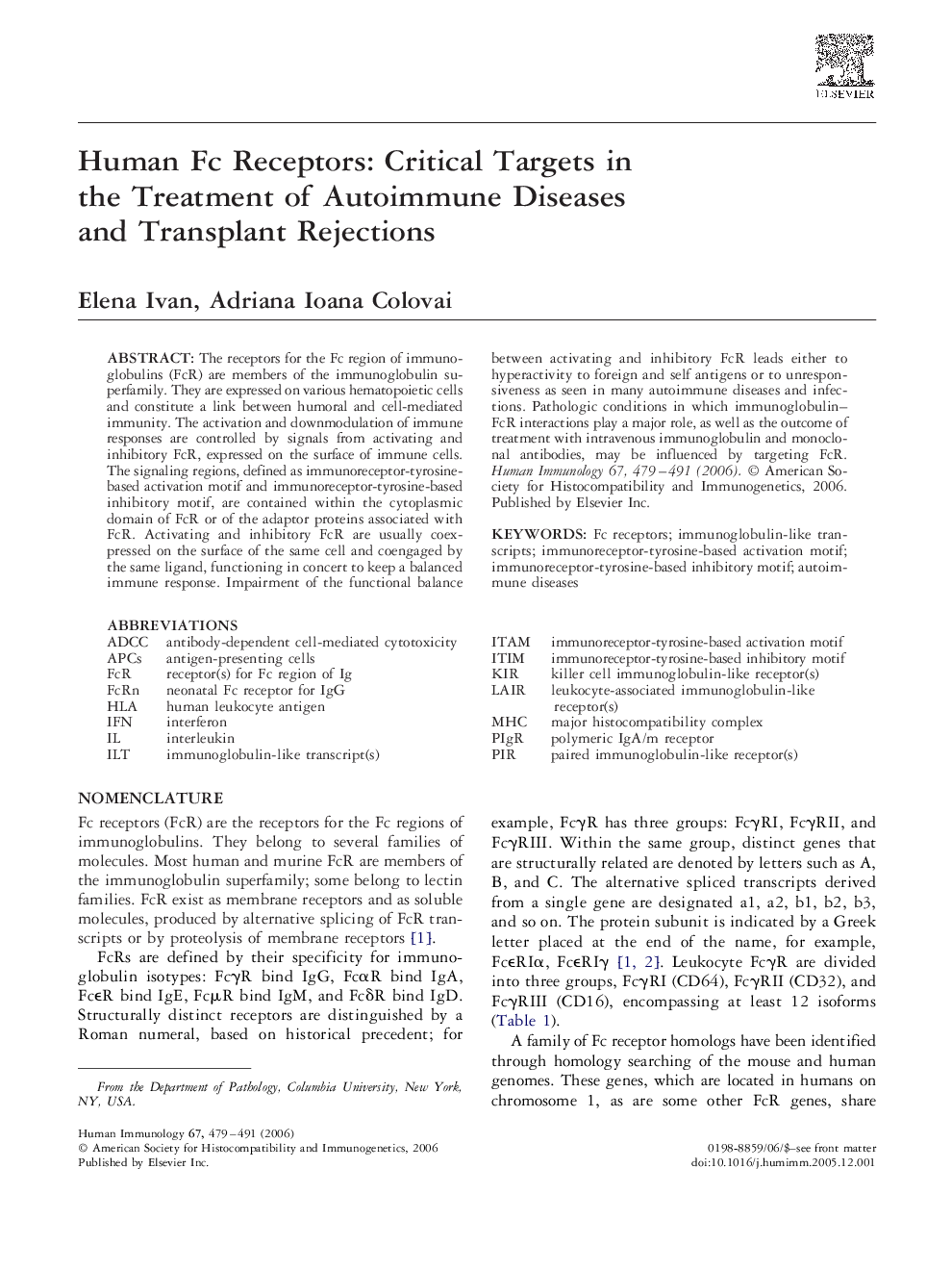| کد مقاله | کد نشریه | سال انتشار | مقاله انگلیسی | نسخه تمام متن |
|---|---|---|---|---|
| 3352515 | 1216484 | 2006 | 13 صفحه PDF | دانلود رایگان |

The receptors for the Fc region of immunoglobulins (FcR) are members of the immunoglobulin superfamily. They are expressed on various hematopoietic cells and constitute a link between humoral and cell-mediated immunity. The activation and downmodulation of immune responses are controlled by signals from activating and inhibitory FcR, expressed on the surface of immune cells. The signaling regions, defined as immunoreceptor-tyrosine-based activation motif and immunoreceptor-tyrosine-based inhibitory motif, are contained within the cytoplasmic domain of FcR or of the adaptor proteins associated with FcR. Activating and inhibitory FcR are usually coexpressed on the surface of the same cell and coengaged by the same ligand, functioning in concert to keep a balanced immune response. Impairment of the functional balance between activating and inhibitory FcR leads either to hyperactivity to foreign and self antigens or to unresponsiveness as seen in many autoimmune diseases and infections. Pathologic conditions in which immunoglobulin–FcR interactions play a major role, as well as the outcome of treatment with intravenous immunoglobulin and monoclonal antibodies, may be influenced by targeting FcR.
Journal: Human Immunology - Volume 67, Issue 7, July 2006, Pages 479–491